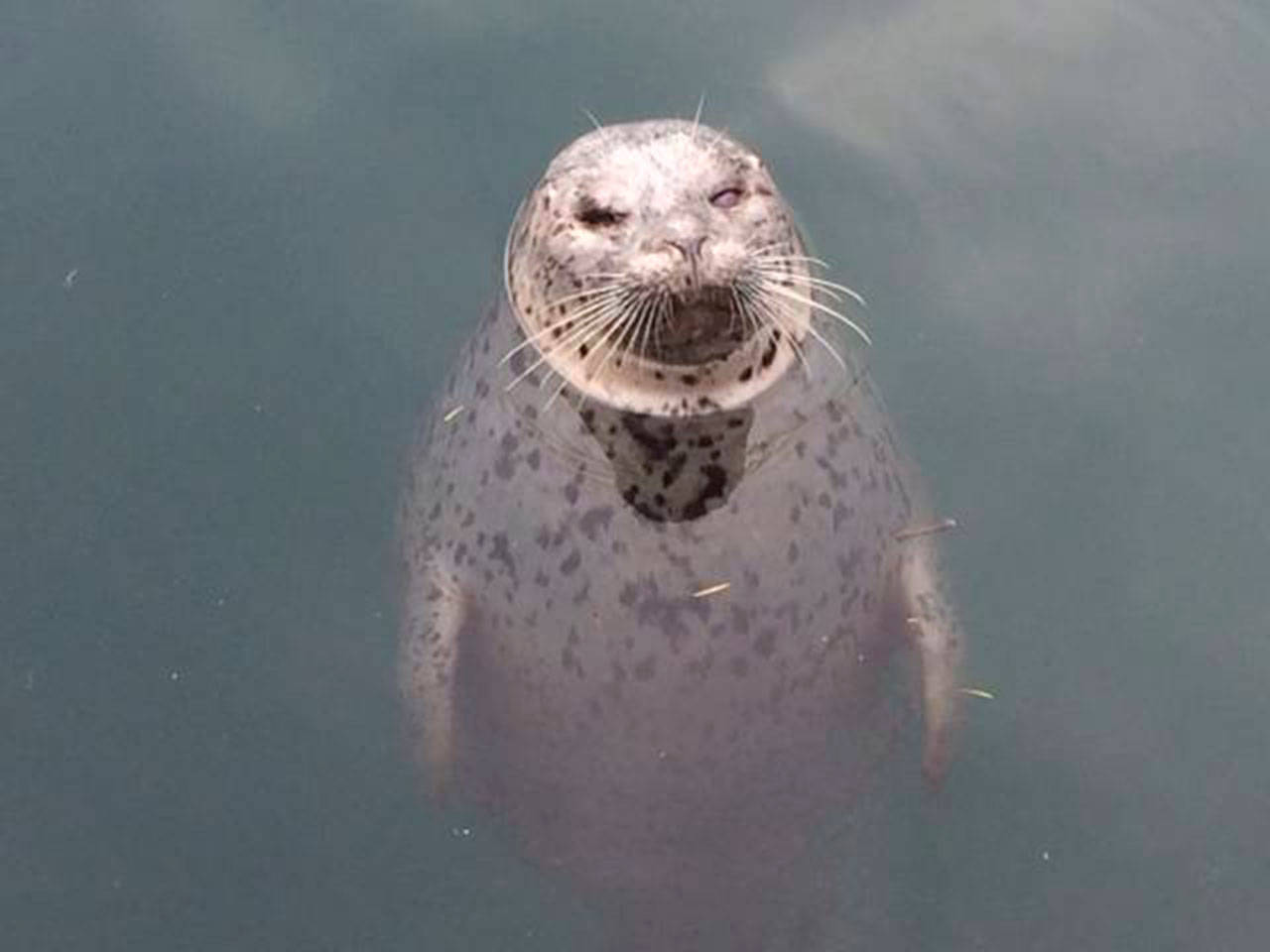Usually, tourists feed Popeye, the harbor seal who frequents the Port of Friday Harbor. On Thursday, Aug. 10, Popeye tried to feed on a tourist instead.
“She jumped out and grabbed hold of my arm,” said Gerald Balmer of Arlington, Washington. “She looked up at me like ‘well I woke you up, now give me a fish.’”
Balmer docked into his guest slip at the port about 10 minutes prior to the attack. The 71-year-old, who had just returned from a fishing trip, was resting his arm against the edge of his 24-foot vessel, when Popeye grabbed it around 7 p.m.
“It’s possible my arm looked like a dead fish,” he said.
Balmer wasn’t leaning over his 24-foot vessel or feeding Popeye. In fact, he said, he was ignoring her repeated splashes.
Jennifer Olson, San Juan County Marine Mammal Stranding Network coordinator at The Whale Museum, said, that to her knowledge, this is the “most serious” report of a Popeye bite and the only one that does not involve someone feeding her.
Olson said MMSN staff has received multiple reports, over the years, of minor bites from Popeye during feedings. MMSN staff helps beached marine mammals return to the ocean.
Locals and tourists have been known to feed the roughly 30-year-old seal for the majority of her life, said Port of Friday Harbor Director Todd Nicholson. Recently, the port, in cooperation with staff from The Whale Museum and National Oceanic and Atmospheric Administration West Coast Region, have increased efforts to prohibit feeding Popeye and other wildlife.
Nicholson said port staff placed a sign banning interaction with marine mammals near Friday Harbor Seafood, before the attack. The shop previously sold fish to feed Popeye, who was often spotted in the neighboring water, waiting for handouts.
This, said Nicholson, needs to stop.
“Popeye is a longtime resident here, but we don’t want the feeding to continue,” he said. “It’s unsafe for people and animals.”
Nicholson said Popeye is likely nearing the end of her life, so preventing the feeding of additional seals is crucial.
“We don’t want to extend this behavior to another generation,” he said.
It is illegal to feed, touch or harass marine mammals thanks to federal law since 1972, added Olson. Fines for these interactions can reach up to $10,000 per infraction, she said.
Popeye is named after the cartoon character because her left eye is blind.
In 2005, the Port of Friday Harbor commissioned a sculpture of her, which stands in Fairweather Park, near the main dock entrance.
After the bite, a registered nurse on a neighboring boat cleaned Balmer’s wound. He was later treated at a veteran’s hospital in Seattle where staff, he said, researched seal bites for two hours to learn how to treat him.
Olson admitted that harbor seal bites are rare, but not as rare with Popeye.
“Animals that associate humans with food can sometimes get aggressive when they are expecting a handout,” she said. Olson added that protecting her roughly 3-week-old pup could have attributed to Popeye’s aggressiveness.
Joe Gaydos, with the SeaDoc Society, said he contacted Balmer, after he was treated, to ensure he was on the correct antibiotics. SeaDoc Society is part of the veterinary school at UC Davis.
Gaydos told Balmer he could contract three life-threatening illnesses — two infections from bacteria in the seal’s mouth and one virus that could cause swelling. Each illness requires different medicine.
Balmer confirmed he has no complications from the bite, or even hard feelings.
“I don’t blame Popeye,” he said. “She’s been taught to feed from people for 20 years.”



